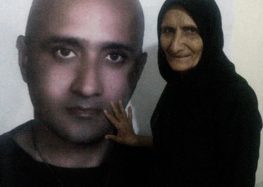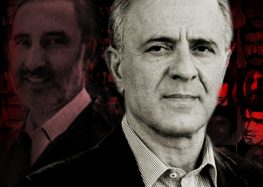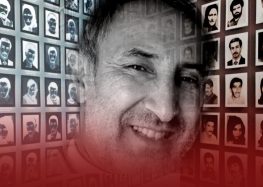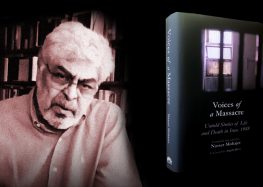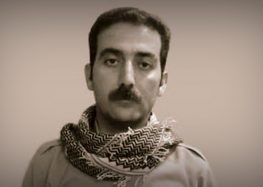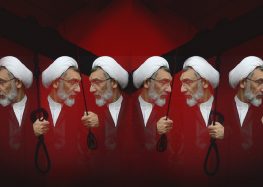Iran’s Supreme Leader Says 1988 Executions of Thousands of Political Prisoners “Unfairly Judged”
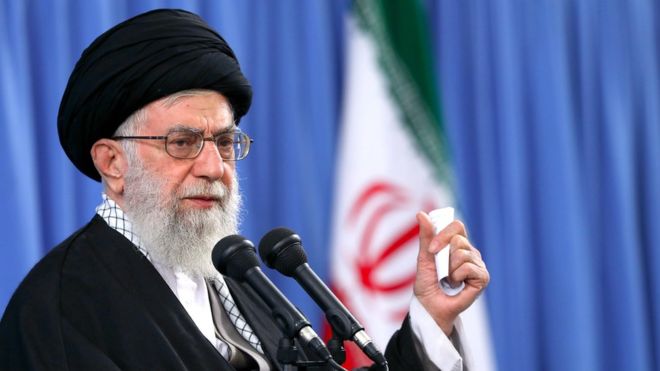
Iranian Supreme Leader Ali Khamenei has broken his silence over the state’s execution of thousands of political prisoners in 1988, which received renewed attention in the country’s May 2017 presidential election when a judicial member implicated in the massacre ran for president.
“The 1980s was a very important and momentous decade that has been unfairly judged,” he said during a speech on June 4, 2017. “Unfortunately, that period remains undiscovered and recently some of the media loudspeakers and their operators have been launching attacks against it.”
Khamenei made the remarks on the 28th anniversary of the death of Ruhollah Khomeini, the leader of Iran’s 1979 revolution. Khomeini setup what came to be known as the “Death Committee,” which ordered the executions of an estimated 4,500-5000 political prisoners throughout Iran during the summer months of 1988.
That year Grand Ayatollah Hossein Ali Montazeri, who was at the time the heir apparent to Supreme Leader Khomeini, condemned the killings, telling its members: “I believe this is the greatest crime committed in the Islamic Republic since the [1979] revolution and history will condemn us for it…. History will write you down as criminals.”
Montazeri’s son, Ahmad, released the taped recording of that conversation in an audio file posted online in August 2016, bringing the massacre to the forefront of public memory.
Ebrahim Raisi, who unsuccessfully ran against President Hassan Rouhani on May 19, 2017, served on the special committee setup by Khomeini that decided whether thousands of prisoners who had already been tried and sentenced would live or die based on their perceived loyalty to the Islamic Republic.
In an April 2017 interview with the Center for Human Rights in Iran (CHRI), Ahmad Montazeri blasted Raisi’s presidential candidacy.
“(Raisi’s) direct and undeniable participation in the massacres in the summer of 1988 is very important,” he said. “If any of the candidates had attacked a person with a knife, he would have had a criminal record and would not get clearance from the authorities, never mind Mr. Raisi, whose record is very clear.”
Raisi’s membership in the committee was never officially brought up in the election, but his candidacy was strongly criticized by human rights activists and relatives of the victims of the 1988 mass executions.
At a campaign rally in Hamadan on May 8, 2017, Rouhani indirectly criticized Raisi’s past.
“The people of Iran are saying they don’t accept those who only hung and imprisoned people for the past 38 years,” he said.
In his June 4 speech, Khamenei, who appointed Raisi as the custodian of the extremely wealthy Astan Quds Razavi religious institution in 2016, defended the cleric, who is also a prosecutor in the Special Court of the Clergy and may replace Khamenei as supreme leader.
“We should be careful not to change the places of the martyrs with the killers,” said Khamenei, referring to the renewed awareness of the 1988 massacre.
Khamenei added that at the time, “terrorists, the (Mojahedin-e Khalgh, MEK) and their backers stabbed Imam Khomeini and the Iranian people in the back.”
The majority of the thousands of prisoners who were executed in 1988 were accused of being members and followers of the MEK, an armed opposition group that attempted to invade Iran from across the border in Iraq in July of that year.
Presidential candidate Gholam-Ali Haddad-Adel broke the taboo against publicly discussing the executions during a speech to the Islamic Association of Engineers on June 1, 2017.
Haddad-Adel, whose daughter is married to one of Khamenei’s sons, referred to Rouhani’s campaign speech in Hamadan and said: “Do we have to say that people won’t vote for anyone who has issued a death sentence? Mr. Raisi did not issue a death sentence against anyone. But if someone has issued a verdict against the (MEK), should we judge it negatively?”
A page on Ebrahim Raisi’s official website denies his role in the executions.

